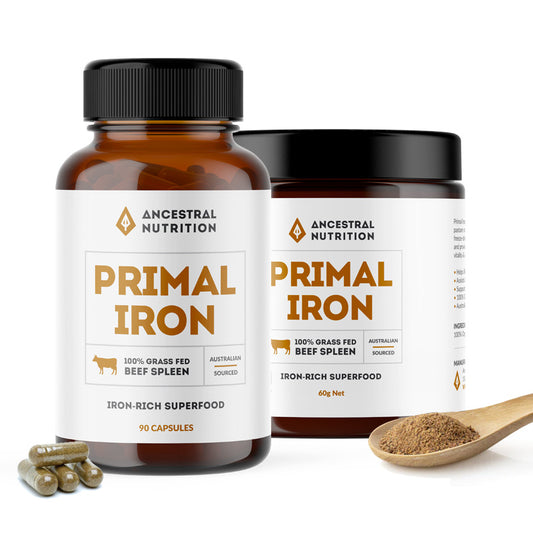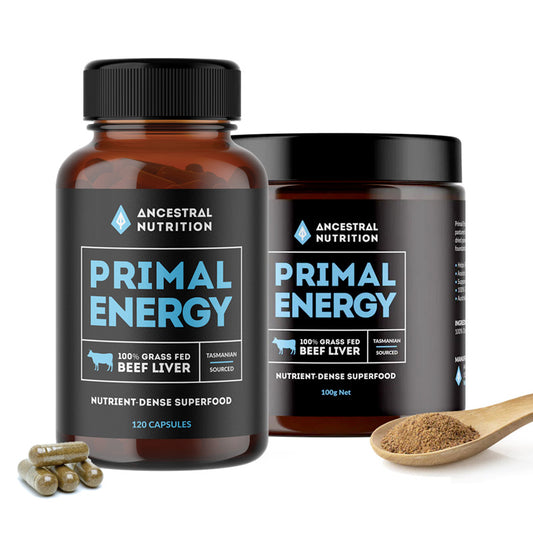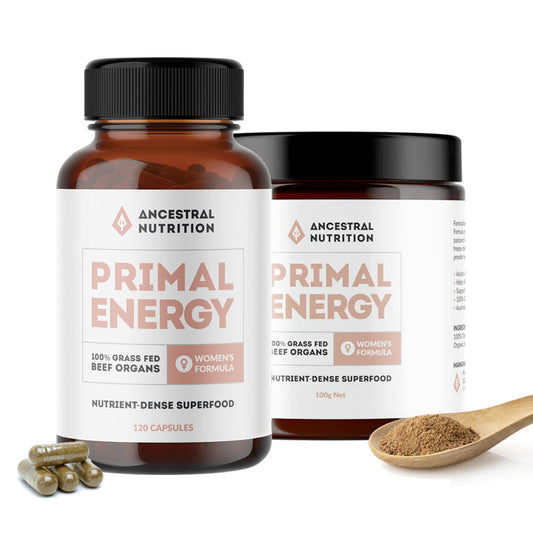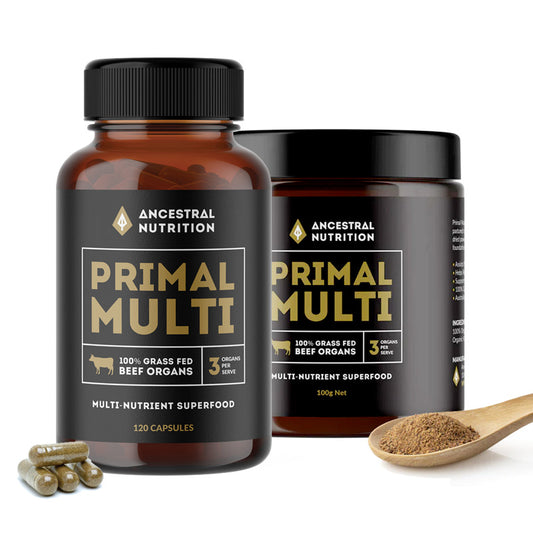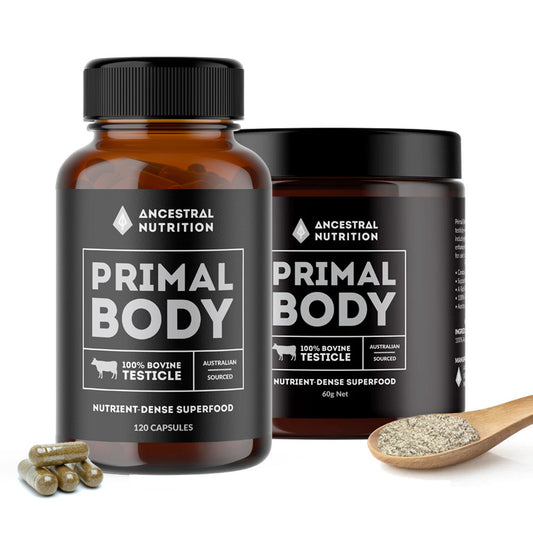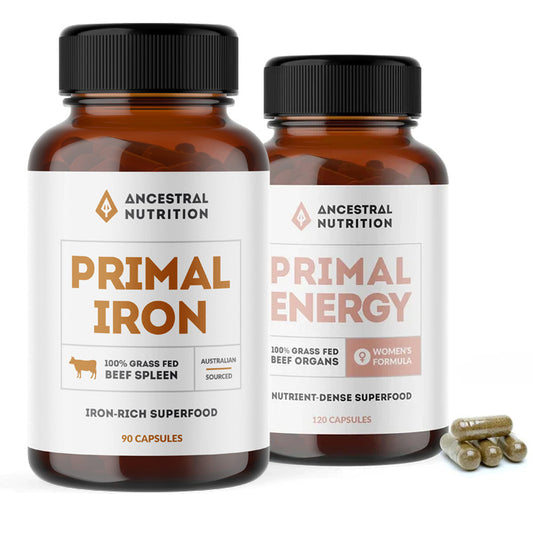Maximising Your Iron Intake: A Wholefood Approach to Better Support
article by Ancestral Nutrition
Iron is a vital nutrient for general health and wellbeing. It plays an important role in energy production, immune support, and the formation of red blood cells. Yet for many people, feeling tired, flat, or out of balance can reflect changing nutrient needs—especially iron.
If you're incorporating wholefood iron sources like beef liver and spleen into your daily routine, there are a few simple strategies that may help you get more from what you’re already doing.
Not All Iron Is the Same
Iron in food comes in two forms: heme iron and non-heme iron.
- Heme iron is found in animal-based foods such as liver, red meat, and fish. It’s generally more easily absorbed by the body.
- Non-heme iron comes from plant-based foods like legumes, spinach, and fortified cereals. While beneficial, it’s less bioavailable, and its absorption is more sensitive to the presence of other nutrients.
Absorption Matters
Iron is primarily absorbed in the small intestine. Its uptake is influenced by:
- Stomach acid levels
- The presence of vitamin C
- Other dietary compounds such as calcium and phytates
This means even if you're eating iron-rich foods, your body may not be absorbing it efficiently. Timing, food combinations, and overall digestive health can all play a part.
Tips to Support Iron Intake Naturally
-
Pair Iron-Rich Foods with Vitamin C
Foods like citrus, broccoli, kiwi, and capsicum are rich in vitamin C and may enhance the absorption of non-heme iron when eaten together. -
Consider Your Meal Timing
Coffee, tea, and calcium-rich foods (like dairy) may interfere with iron absorption if taken at the same time. Aim to space them at least an hour apart from iron-rich meals. -
Supportive Nutrients Work Together
Nutrients like vitamin A, vitamin B12, folate, and copper all play supportive roles in the body’s use of iron. For example:
- Vitamin A helps maintain normal iron metabolism.
- B12 and folate support red blood cell formation.
- Copper contributes to normal iron transport.
This is why many people choose to combine Primal Iron (beef spleen) with Primal Energy (beef liver) for a more comprehensive wholefood approach to iron and general vitality.
A Wholefood Choice
At Ancestral Nutrition, we’re passionate about nutrient-dense foods made the traditional way. Our Primal Iron formula provides grass-fed beef spleen in freeze-dried form, retaining its natural nutrients without synthetic additives.
- 100% grass-fed and grass-finished
- Freeze-dried to preserve nutrient content
- No hormones, antibiotics or fillers
- Our wholefood range is proudly made in Australia and reflects a return to simplicity—real food, real nutrients, as nature intended.
In Summary
If you're feeling depleted or looking to optimise your iron intake:
- Focus on iron-rich foods, especially from animal sources
- Pair meals with vitamin C-rich fruits and vegetables
- Be mindful of dietary blockers like tea, calcium, and phytates
- Look for wholefood formulas that offer iron alongside key co-nutrients
- Iron needs can vary from person to person. If you're unsure, speak with your healthcare provider for personalised guidance.
You can find out more about our whole food iron here

